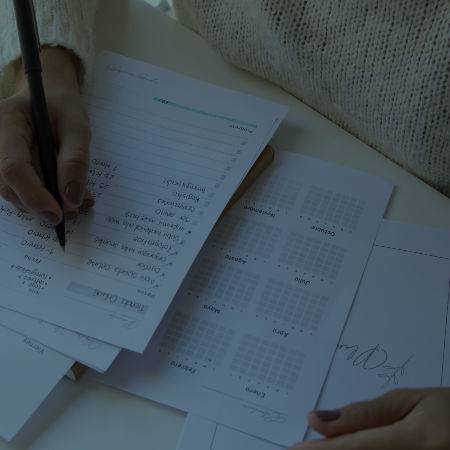Lenguae tiene como objetivo enseñar el lenguaje de una manera integral. Con nuestros cursos, aprenderá a comprender y expresarse tanto por escrito como hablando, al mismo tiempo que se pone en contacto con la cultura de los países que hablan el idioma que está aprendiendo. Todos nuestros profesores tienen experiencia en la enseñanza de idiomas, ya sea hablantes nativos o haber vivido en el extranjero.
Carrera en Lenguae
Professional Translation Research Protocol
Professional translation of research protocols is critical for ensuring accurate communication between researchers and participants in clinical trials. Research protocols provide essential information about the study design, inclusion criteria, exclusion criteria, and methodology for conducting the study.
Professional translation of research protocols ensures that all participants have access to the same information, regardless of their language or cultural background. This is particularly important for multinational clinical trials, where participants may come from diverse linguistic and cultural backgrounds.
- translation of Immigration documents
- translation of exhbits documents
- birth certificate translation
- marriage certificate translation
- translation of police records
- translation of bank statements
Steps Taken To Curate Professional Translation Research Protocol
Lenguae being a proficient and experienced translation company take into consideration the following steps to ensure the quality of the translation stays eloquent:
Define The Research Question And Objectives
Before starting any research project, it is crucial to have a clear understanding of what you want to achieve. Define your research question and objectives to ensure that your translation research protocol is focused and specific.
Determine The Methodology
There are several methods of research that can be used in translation studies. Determining which method will be most appropriate for your research question and objectives. For example, you may choose to conduct a qualitative study, a quantitative study, or a mixed-methods approach.
Develop A Data Collection Plan
Once you have determined the methodology, you need to develop a data collection plan. This plan should outline how you will collect data, what data you will collect, and who will collect the data. You may need to use various data collection methods, such as surveys, interviews, or observations.
Consider Ethical Implications
Research involving human subjects has ethical implications. It is essential to consider the ethical implications of your research and take steps to protect the rights and privacy of your participants. Ensure that your research protocol meets the ethical standards set by your institution or professional association.
Analyze And Interpret The Data
After collecting data, you will need to analyze and interpret it. This will involve organizing and summarizing the data to draw meaningful conclusions. You may need to use statistical software or other tools to analyze the data.
Write Up The Research Findings
Finally, you will need to write up your research findings in a clear and concise manner. Your research protocol should include an executive summary, introduction, methods, results, and conclusions. The protocol should be written in a way that is easily understandable to others, including those who are not familiar with translation research.
We specialized in translating immigration-related topics within the following languages:
- Translation German English
- Translation Dutch English
- Translation Norwegian English
- Translation Swedish English
- Translation Spanish English
- Translation Portuguese English
- Translation Frech English
- Translation Italian English
- Translation Russian English
- Translation Arabic English
- Translation Mandarin English

Crucial Documents Translated Through Professional Translation Research Protocol
Professional translation research protocols require the use of several key documents to ensure that research is conducted in a rigorous and ethical manner. Here are five major documents that are commonly used in professional translation research protocols:
Informed Consent Form (ICF): An ICF is a document that outlines the purpose of the research, the procedures involved, and the risks and benefits associated with participation. It also includes information about confidentiality and data protection, as well as details about the participant’s rights and the process for withdrawing from the study.
Translation Plan: A translation plan outlines the translation process for the study. It includes details such as the languages to be translated, the translation method to be used, and the qualifications of the translator.
Translation Certificate: A translation certificate is a document that certifies that the translation has been completed accurately and appropriately. It is signed by the translator and serves as a guarantee that the translation is of high quality.
Research Protocol: A research protocol is a document that outlines the design and methodology of the research study. It includes details such as the research question, the sampling strategy, the data collection methods, and the data analysis plan.
Data Protection Agreement: A data protection agreement is a document that outlines how the research team will protect participants’ data throughout the research process. It includes details such as how data will be collected, stored, and shared, as well as how confidentiality will be maintained.
Above mentioned were some of the critical documents that are consistently translated by the translators of Lenguae. This will help to ensure that research is conducted in an ethical and rigorous manner and that participants’ rights and data protection are safeguarded throughout the process.
0
human native
translators
translators
0
HOURS
for a quote
for a quote
0+
languages
available - all iso Certified
available - all iso Certified
0+
ø years of staff experience
0
industries
Assuring The Level Of Quality Of The Translated Documents Of The Research Protocol
Ensuring the quality of translated documents is crucial when it comes to professional translation research protocols. Poor-quality translations can lead to misinterpretations and inaccurate data, which can compromise the validity of the study. Here are some ways to take care of the quality of translated documents for research protocols:
Use qualified translators: It is essential to use qualified and experienced translators who are proficient in both the source and target languages. Professional translation service providers have a pool of skilled and experienced translators who are specialized in various fields, including research.
Follow a translation protocol: A translation protocol outlines the steps to be taken during the translation process, including the translation method to be used, the language pair, and the qualifications of the translator. A well-defined protocol helps ensure consistency and accuracy across all translations.
Use translation memory tools: Translation memory tools help translators to identify and reuse previously translated text, ensuring consistency across all documents. These tools are especially useful for large-scale translation projects that involve multiple documents.
Review and proofread translations: After the initial translation, it is important to review and proofread the translation for accuracy, consistency, and clarity. This can be done by a second qualified translator or a reviewer with knowledge of the subject matter.
"La metodología, el material y los excelentes profesores hacen de Linguae la mejor opción para el aprendizaje personalizado del inglés, ya que los objetivos de aprendizaje son compartidos con el alumno. Su equipo dedicado está muy preocupado por el desarrollo del estudiante. ¡Lo recomiendo!"
Ronaldo Conceição Coordinador de TI - Telhanorte
"He estudiado inglés con otros profesores y escuelas, pero nunca me he adaptado tan bien al formato de las clases y el curso como lo hice en el Instituto Linguae. Las principales cualidades educativas son las clases dinámicas y la competencia técnica del profesor. ¡Siento que mi inglés ha mejorado mucho!"
Dr. Diogo Domiciano Reumatólogo de la FMUSP
¡Cuentan con grandes profesionales, que están realmente comprometidos con la enseñanza correcta de una lengua extranjera!"
Fábio Lopes - Depto. Costo de la TSeguros Unimed
"Dominar una o dos lenguas extranjeras ya no es un privilegio, sino una necesidad. Linguae cuenta con profesores cualificados para empresarios dispuestos a innovar y mantenerse en lo más alto. ¡Lo recomiendo!"
Jaques Grinberg CostaDirector en Easycomp
Getting The Through The Service Required In Professional Translation Research Protocol
The professional translation research protocol is a vital service for businesses and individuals who require accurate translations of their documents or other materials. This service is particularly important for those who need to communicate with audiences that speak different languages, whether it’s for business, legal, or academic purposes.
The process of professional translation research protocol involves a team of experts in Lenguae who are knowledgeable in both the source and target languages, as well as the specific field of study. These experts work together to ensure that the translation is accurate and culturally appropriate, taking into account nuances in language and cultural differences.
Overall, professional translation research protocol is an essential service for anyone who needs to communicate effectively with a global audience. With the help of skilled and experienced translators of Lenguae, businesses, and individuals can ensure that their message is accurately conveyed and that they are able to reach and connect with people from all over the world.
Frequently Asked Questions
Our professional translators are highly qualified and experienced, with extensive knowledge of both the source and target languages, as well as the specific field of study. They undergo rigorous testing and training to ensure that they can deliver accurate and culturally appropriate translations.
We have a rigorous quality assurance process that involves multiple rounds of editing and proofreading by our team of experts. We also use advanced translation tools and software to ensure consistency and accuracy in our translations.
The turnaround time for a translation project depends on several factors, such as the complexity of the source material, the length of the document, and the availability of our translators. We work closely with our clients to establish realistic timelines and deliver the completed project within the agreed-upon timeframe.
Yes, we offer certified translations for legal and official documents, such as birth certificates, marriage certificates, and academic transcripts. Our certified translations are accepted by government agencies and other institutions around the world.
Yes, we can handle translations in multiple languages. Our team of professional translators has expertise in a wide range of languages, and we can provide accurate and culturally appropriate translations in virtually any language pair.
Traducciones profesionales
- Traducciones profesionales
de Documentos Legales- Traducciones profesionales
para el sector de salud-
- Traducciones profesionales
para la industria farmacéutica -
- Traducciones profesionales
para agencias federales - Traducciones profesionales
para gobiernos estatales y- Traducciones profesionales
de Documentos de Inmigración- Traducciones profesionales
para empresas- Traducciones profesionales
para la educación- Traducciones profesionales
español a inglés
Servicios de interpretación
- Servicios de interpretación
Jurídica- Servicios de interpretación
para médicos- Servicios de interpretación
para agencias federales- Servicios de interpretación
para gobiernos estatales- Servicios de interpretación
Simultánea- Servicios de interpretación
educativa- Servicios de interpretación
remota- Servicios de interpretación
de conferencias














